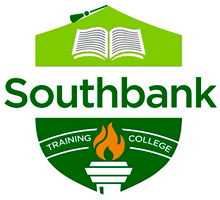Course Overview
-
Assessment methodPortfolio of evidence
-
Credit value65
-
Guided learning hours (GLH)488
-
Learning aim reference60153726
-
Qualification number601/5372/6
-
Total qualification time (TQT)650
The Highfield Level 5 Diploma in Leadership and Management for Residential Childcare (England) (RQF) is the mandatory qualification for registered managers and senior practitioners in residential childcare settings. This nationally recognised qualification equips learners with the leadership, safeguarding, communication, and operational management skills necessary to provide high-quality care for children and young people aged up to 25, including those with complex needs.
Objectives
-
Develop strategic and operational leadership in residential childcare.
-
Enhance safeguarding, group living, and trauma-informed care practices.
-
Equip learners to manage teams, assess risk, and lead inclusive care environments.
-
Support learners in engaging with multi-agency networks and maintaining compliance.
Entry Requirements
-
Learners must be aged 19+ and working in a management or leadership role in residential childcare.
-
A Level 3 qualification and Level 2 English and Maths are recommended.
-
Learners should undergo an enhanced DBS check before starting the course.
Assessment
-
Assessment Method: Portfolio of Evidence assessed in the real work environment.
-
Assessment methods include:
-
Observations
-
Reflective accounts
-
Professional discussions
-
Work products
-
Witness testimonies
-
Course Structure
Mandatory Units (57 Credits)
| Unit Ref | Unit Title | Level | GLH | Credit |
|---|---|---|---|---|
| M/506/7650 | Understand children and young people’s development in residential childcare | 5 | 25 | 3 |
| A/506/7652 | Understand support for children and young people who are vulnerable and disadvantaged | 4 | 20 | 2 |
| L/506/7607 | Lead and manage a team within a residential childcare setting | 5 | 36 | 5 |
| M/506/8362 | Lead practice to support the safeguarding and protection of children | 5 | 55 | 8 |
| A/506/7585 | Lead practice for communication and information management | 5 | 30 | 4 |
| J/506/7590 | Manage risk in residential childcare | 5 | 22 | 3 |
| L/506/7591 | Lead and manage group living in residential childcare | 5 | 31 | 4 |
| F/506/8365 | Lead a service that can support children or young people who have experienced harm | 5 | 24 | 3 |
| F/506/7619 | Lead practice to achieve positive outcomes for children and young people | 5 | 35 | 5 |
| T/506/7620 | Lead practice to support well-being and resilience | 5 | 21 | 3 |
| L/506/8367 | Lead practice in safe use of digital, internet and mobile technology | 4 | 16 | 2 |
| T/506/7584 | Lead practice to promote the rights, diversity and equality | 5 | 25 | 3 |
| R/506/7608 | Lead networks and multi-agency work | 5 | 26 | 4 |
| R/506/8192 | Implement a Positive Relationship Policy | 5 | 41 | 6 |
| H/506/7791 | Undertake professional development | 4 | 18 | 2 |
Optional Units (Chosen for 8 Credits)
| Unit Ref | Unit Title | Level | GLH | Credit |
|---|---|---|---|---|
| H/506/7595 | Understand the care system and its impact on children and young people | 4 | 22 | 3 |
| Y/506/8114 | Lead practice to support young people leaving care | 5 | 25 | 4 |
| R/506/8158 | Support others to understand models of disability | 4 | 17 | 2 |
Total Credits: 65
Course Content (Topics)
-
Child development and vulnerable children’s support
-
Leadership and team management in childcare settings
-
Safeguarding, protection, and trauma-informed practices
-
Group living, risk management, and rights-based approaches
-
Communication, digital safety, and professional development
-
Multi-agency working and relationship-based care
-
Inclusive practice, wellbeing, and equality promotion
Duration
- Typical Completion Time: 12–18 months (depending on role and delivery format)
- Fast Track: 6 months
Pathway Summary
This course prepares residential childcare managers to lead person-centred, safe, and empowering environments for children and young people. Units cover leadership, safeguarding, equality, digital responsibility, and interagency collaboration, ensuring learners are fully equipped to deliver quality care and drive service improvement. Optional units allow learners to tailor their focus to issues like leaving care support, disability awareness, and understanding the care system.
